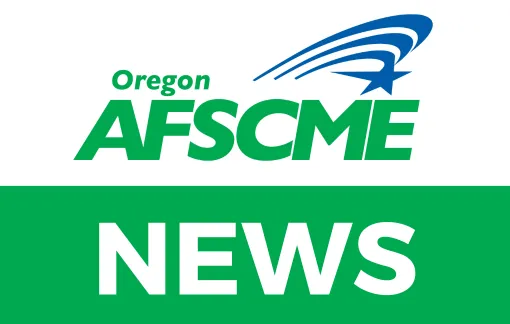Oregon’s Cities, Counties, and Transportation Workers Call on State Leaders to Address Transportation Funding Crisis

SALEM, Ore. — In a unified call to action, the Association of Oregon Counties (AOC), the League of Oregon Cities (LOC), and Oregon AFSCME sent a joint letter to Governor Tina Kotek, Senate President Rob Wagner, and House Speaker Julie Fahey urging both immediate and long-term action to stabilize statewide transportation funding. The joint letter, sent July 23, is in response to the proposed legislative transportation fix to be considered during the August 29 special legislative session.
“Oregonians across the state rely on a safe, reliable transportation system to access critical services like schools, emergency services, healthcare, and jobs,” said AOC Executive Director Gina Nikkel. “Without sustainable funding, local governments will be forced to cut services, defer maintenance, and compromise safety on Oregon’s roads.”
The letter underscores the shared responsibility between state and local governments for maintaining Oregon’s transportation infrastructure, and calls on lawmakers to protect the long-standing 50/30/20 State Highway Fund (SHF) distribution formula — which allocates transportation revenue between the state (50%), counties (30%), and cities (20%).
The state, counties and cities share responsibility for road maintenance and transportation support throughout the state. Local governments are responsible for the maintenance of over 44,000 miles of road.
Key concerns raised in the letter include:
nments for maintaining Oregon’s transportation infrastructure, and calls on lawmakers to protect the long-standing 50/30/20 State Highway Fund (SHF) distribution formula — which allocates transportation revenue between the state (50%), counties (30%), and cities (20%).
The state, counties and cities share responsibility for road maintenance and transportation support throughout the state. Local governments are responsible for the maintenance of over 44,000 miles of road.
Key concerns raised in the letter include:
Staffing Shortages: Counties alone have already lost over 700 operations and maintenance staff since 1990. More than 400 new county road workers are needed today to meet basic service levels.
Deteriorating County Infrastructure: Without intervention, over 4,500 miles of county roads will miss critical maintenance within five years, leading to exponentially more expensive reconstruction. Nearly 170 county bridges will go without critical maintenance work, and heavy vehicles will have to be turned away to avoid collapse and injury.
City Struggles: LOC estimates that 40% of city streets are already in poor or very poor condition. Most cities already face financial distress and lack the flexibility to address the shortfall.
Worker Impact: Oregon AFSCME represents roughly 60% of the state’s county and city employees, including 800 transportation workers whose positions are directly supported by gas tax revenue.
The organizations urge legislative leaders to take two actions:
Pass a short-term funding solution during the August special session that preserves the SHF distribution and prevents further harm to local transportation services.
Commit to a bipartisan, transparent and inclusive process leading to a long-term, comprehensive statewide transportation package in the 2027 session that stabilizes and modernizes core transportation funding for the long term safety of average commuters and the workers who support them, rain or shine, throughout the year.
“We’re ready to be at the table for the tough conversations ahead,” said Joe Baessler, Executive Director of Oregon AFSCME. “Adequate investments must be made to ensure Oregonians have safe and reliable access,” continued Baessler.
“AOC appreciates that the legislature is taking near-term action this summer to avert transportation service cuts,” said AOC Executive Director Gina Nikkel, “and counties are committed to working with our partners to pass a long-term, comprehensive package in 2027 that addresses the structural inadequacies in the State Highway Fund and allows local governments to fund the operations, maintenance, and preservation activities necessary to keep Oregonians safe on our shared system into the future.”
“For my community, the impact on local emergency response must be resolved ASAP! ODOT is the lead agency that facilitates evacuations, and we have over two more months of wildfire season left. They also play a critical role in keeping the state highways open during the winter season. Without funding for ODOT and our own city, our community is at risk of losing access to essential goods and services. The proposal from Governor Kotek presents a short-term benefit, but we must keep our focus on a long-term funding solution to reinvest in communities across Oregon.” -Sisters Mayor Jennifer Letz
The full letter can be read here.
